Jimmy Carter, former US president, dies at 100
Carter shaped American history through diplomacy.
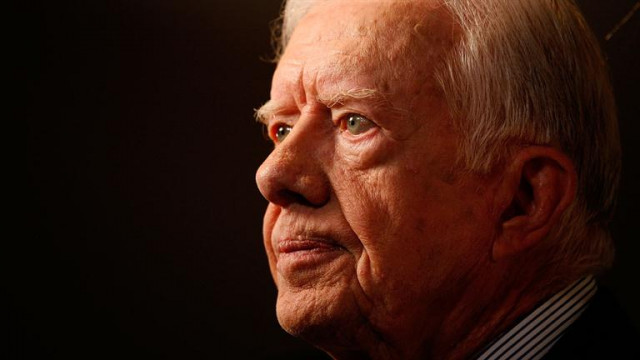
Jimmy Carter, the earnest peanut farmer from Georgia who served as the 39th president of the United States, passed away at his home in Plains, Georgia, on Sunday at the age of 100.
According to the Carter Centre. Despite struggling with economic challenges and the Iran hostage crisis during his presidency, he achieved historic peace agreements between Israel and Egypt and was later awarded the Nobel Peace Prize for his humanitarian contributions.
"My father was a hero, not only to me but to everyone who values peace, human rights, and selfless love," said Chip Carter, his son. "My siblings and I shared him with the world through these shared ideals. The world became our extended family thanks to his ability to unite people, and we are grateful for the ongoing celebration of his legacy."
A Democrat, Carter held office from January 1977 to January 1981, having defeated Republican incumbent Gerald Ford in the 1976 election. However, he was decisively ousted four years later by Ronald Reagan, the former actor and governor of California.
Carter went on to live longer after his presidency than any other US president, earning widespread admiration for his work post-presidency.
His presidency featured the high point of the 1978 Camp David Accords, fostering peace between Israel and Egypt, but was overshadowed by economic difficulties, unpopularity, and the Iran hostage crisis, which persisted for 444 days and cast a long shadow over his administration.
In his later years, Carter faced several health challenges, including melanoma that had metastasised to his liver and brain. In February 2023, he opted for hospice care instead of further medical treatment. His wife, Rosalynn Carter, passed away in November 2023 at the age of 96. Carter, appearing frail, attended her memorial service in a wheelchair.
Although Carter left office with low approval ratings, he became highly respected for his humanitarian efforts over subsequent decades. In 2002, he was awarded the Nobel Peace Prize for his dedication to resolving international conflicts, promoting democracy and human rights, and encouraging economic and social development.
Initially a centrist with populist tendencies as Georgia’s governor, Carter assumed the presidency as a Washington outsider during a time when America was still recovering from the Watergate scandal that led to Richard Nixon's resignation. His campaign pledge, "I will never lie to you," resonated with voters seeking honesty.
Reflecting on his time in office, Carter admitted in a 1991 documentary, "The biggest failure we had was a political failure. I never was able to convince the American people that I was a forceful and strong leader."
However, his post-presidential accomplishments far outshone his time in the White House. Renowned for championing human rights and addressing global hunger and poverty, Carter became a respected voice for the underprivileged and a mediator in international conflicts. His Carter Centre in Atlanta deployed election-monitoring teams worldwide and facilitated resolutions in nations like Ethiopia, Bosnia, and Haiti.
As a lifelong Southern Baptist and Sunday school teacher, Carter brought a deep sense of morality to his presidency. He emphasised simplicity, opting to walk during his inaugural parade instead of riding in a limousine.
His foreign policy centred on the Middle East, culminating in the historic 1979 Egypt-Israel peace treaty, which ended a state of war between the two nations. Egyptian President Anwar Sadat and Israeli Prime Minister Menachem Begin won the 1978 Nobel Peace Prize for their roles in the accord.
Domestically, Carter faced mounting challenges, including soaring inflation, high interest rates, and an energy crisis. In a 1977 speech, he described the energy crisis as "the moral equivalent of war" and urged Americans to embrace conservation. By 1979, his "crisis of confidence" speech highlighted the broader societal malaise afflicting the nation.
Carter’s presidency was further marred by the Iran hostage crisis, which began in November 1979 when revolutionaries loyal to Ayatollah Khomeini seized the US Embassy in Tehran.
An attempted rescue mission in April 1980 ended in failure, with eight US servicemen losing their lives. The hostages were ultimately released moments after Ronald Reagan’s inauguration in January 1981, adding to Carter’s political ignominy.
In response to the Soviet Union's 1979 invasion of Afghanistan, Carter boycotted the 1980 Moscow Olympics and suspended Senate consideration of a major arms treaty. Despite his efforts, the Soviets remained entrenched in Afghanistan for a decade.
Carter's domestic achievements included the creation of the Departments of Energy and Education and the ratification of the Panama Canal treaty, transferring control of the canal to Panama. However, his presidency was often overshadowed by economic and geopolitical crises.
Born James Earl Carter Jr. on 1 October 1924 in Plains, Georgia, he grew up as the son of a farmer and shopkeeper. After graduating from the U.S. Naval Academy in 1946 and serving in the nuclear submarine programme, he returned to Georgia to manage his family’s peanut business. Carter married Rosalynn Smith in 1946, and they had four children.
Carter’s political career began as a state legislator and Georgia governor from 1971 to 1975. His underdog campaign for the 1976 Democratic presidential nomination ultimately succeeded, aided by Gerald Ford’s missteps during debates.
While Carter’s post-presidency was marked by significant achievements, it was not without controversy. His freelance diplomacy, particularly in Iraq and North Korea, occasionally irked sitting presidents. Carter criticised George W. Bush’s 2003 invasion of Iraq as one of the nation’s gravest mistakes and questioned Donald Trump’s legitimacy as president due to alleged Russian interference in the 2016 election.
Carter also engaged with North Korea, mediating a nuclear crisis in 1994 and securing the release of detained Americans in subsequent years. His 2004 criticism of the Iraq war highlighted his willingness to challenge prevailing policies.
Authoring more than 20 books, including works on faith, diplomacy, and personal memoirs, Carter continued to share his insights and experiences throughout his life. His enduring legacy remains one of advocacy for peace, justice, and the betterment of humanity.


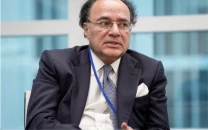
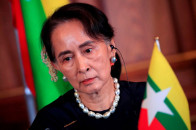
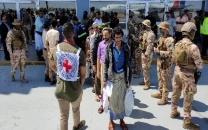
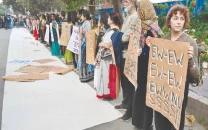



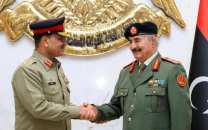


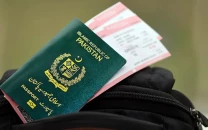






COMMENTS
Comments are moderated and generally will be posted if they are on-topic and not abusive.
For more information, please see our Comments FAQ